Muhammad (S.A.W) united the Arab nation on the basis of Tawheed
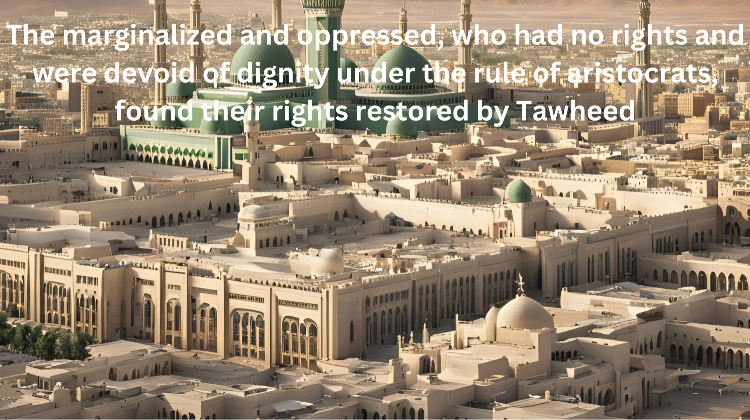
After attaining prophethood, the Messenger of Allah (PBUH) started the task of uniting people on the basis of Tawheed, and this was the work he carried out throughout the thirteen years in Mecca, without diverting people's attention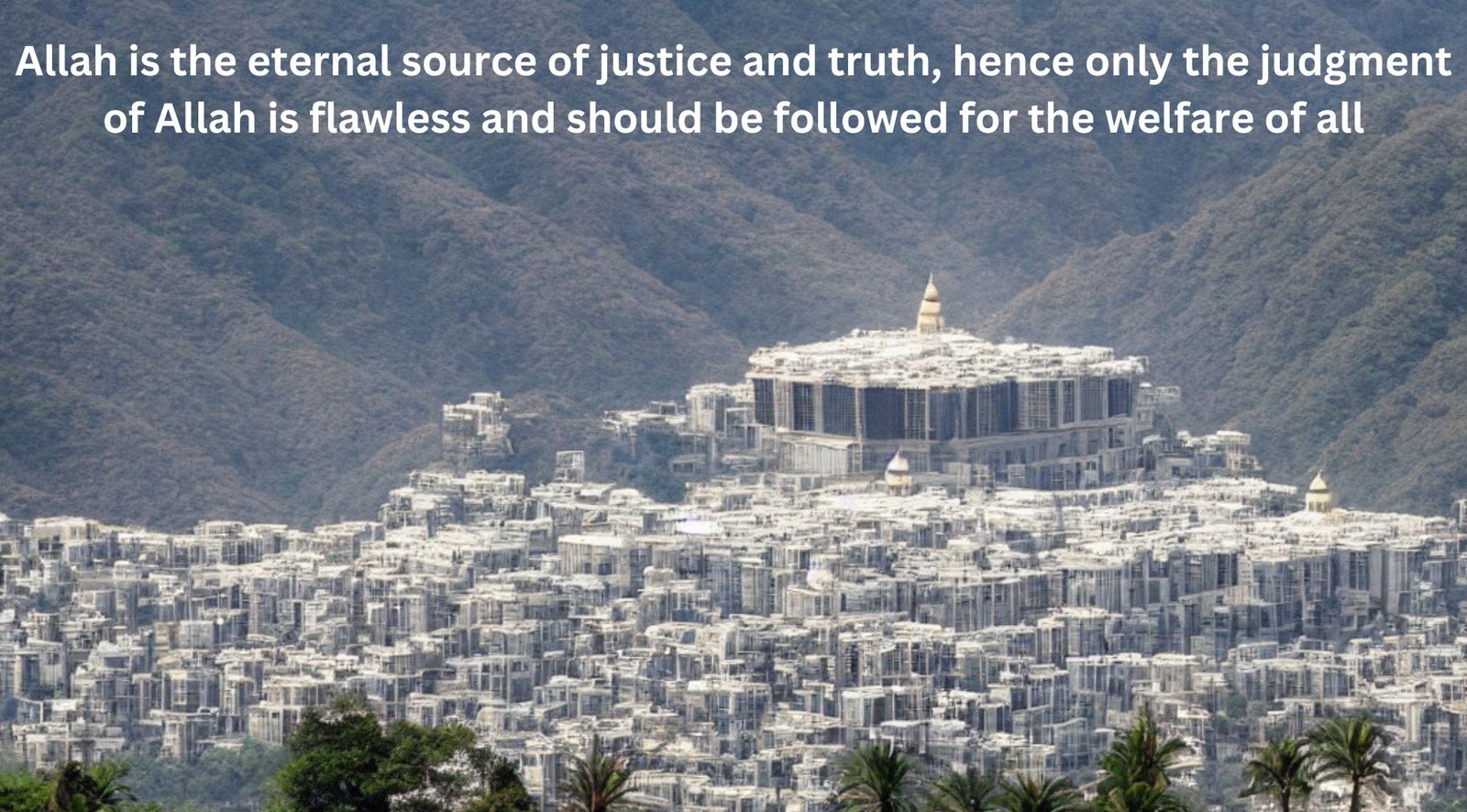 elsewhere. Arabia was then engulfed in the turmoil of wars. He could understand the dire consequences of warfare and bloodshed on people's lives. He could call for peace and reconciliation. He endeavored to create good people by advising against theft, robbery, alcoholism, and usury. He could propagate to purify society from immorality, conduct campaigns. He could establish centers to assist women against oppression. He could ensure safe living for orphaned children by establishing orphanages. He could establish shelters for families who lost everything in war. He could form Tabligh groups to preach personal righteousness. He could initiate efforts to free the nation from the curse of conflict and establish peace institutions. But history tells us that he did none of these (meaning, it was confirmed that these were not the correct paths of establishing the Deen). He consistently called people towards one thing only - saying, "O people! Say, there is no god but Allah, Muhammad is the Messenger of Allah, and there is no authority except Allah, and Muhammad (PBUH) is the sent Messenger of Allah." This short sentence is the basis of the Deen of Truth, upon this mantra was built the civilization of Islam.
elsewhere. Arabia was then engulfed in the turmoil of wars. He could understand the dire consequences of warfare and bloodshed on people's lives. He could call for peace and reconciliation. He endeavored to create good people by advising against theft, robbery, alcoholism, and usury. He could propagate to purify society from immorality, conduct campaigns. He could establish centers to assist women against oppression. He could ensure safe living for orphaned children by establishing orphanages. He could establish shelters for families who lost everything in war. He could form Tabligh groups to preach personal righteousness. He could initiate efforts to free the nation from the curse of conflict and establish peace institutions. But history tells us that he did none of these (meaning, it was confirmed that these were not the correct paths of establishing the Deen). He consistently called people towards one thing only - saying, "O people! Say, there is no god but Allah, Muhammad is the Messenger of Allah, and there is no authority except Allah, and Muhammad (PBUH) is the sent Messenger of Allah." This short sentence is the basis of the Deen of Truth, upon this mantra was built the civilization of Islam.
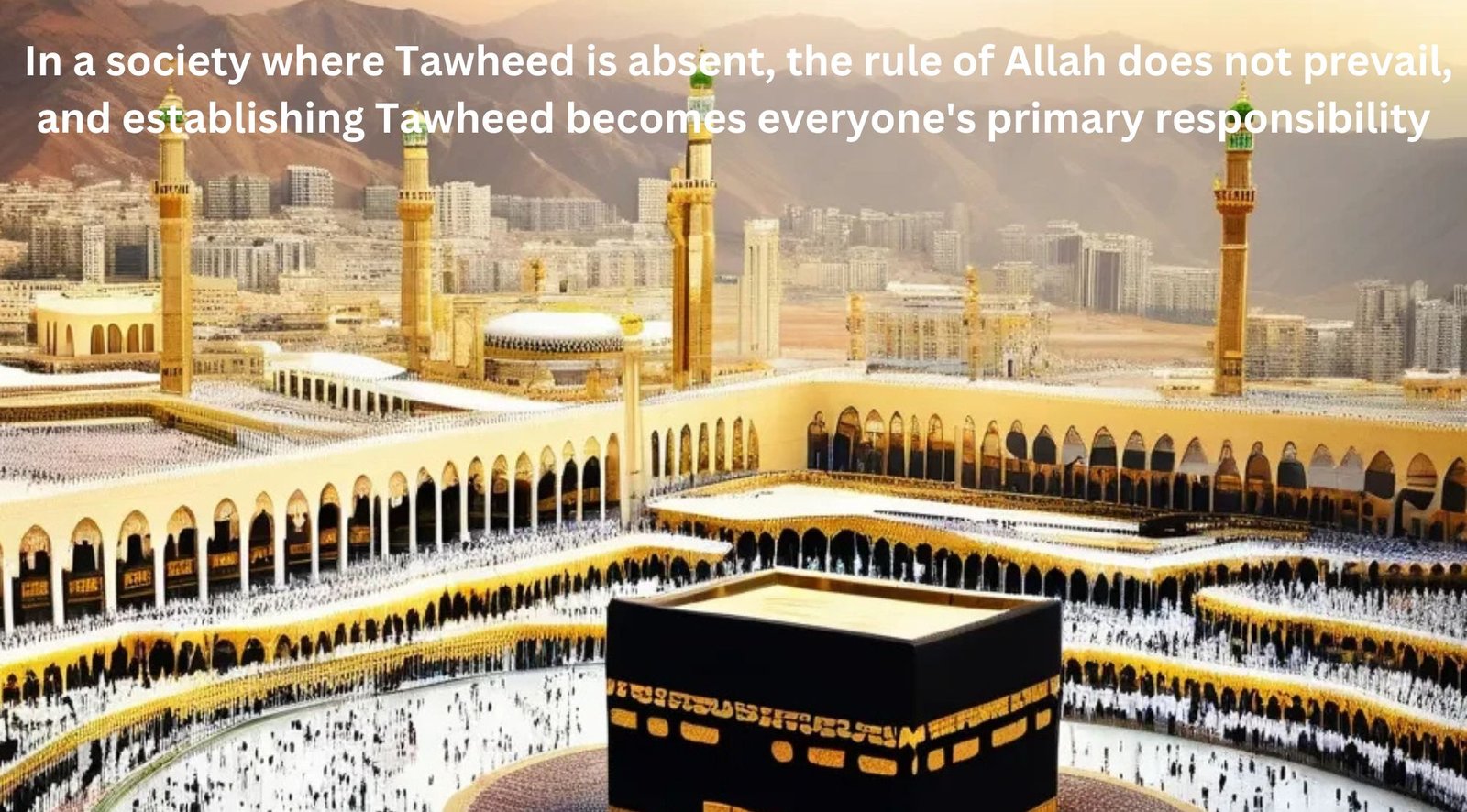 The reason the Messenger of Allah (PBUH) devoted himself solely to the propagation of Tawheed without paying attention to any other direction is multi-fold. Firstly, the foremost importance of monotheism. In a society where Tawheed is absent, the rule of Allah does not prevail, and establishing Tawheed becomes everyone's primary responsibility. Secondly, the Messenger of Allah knew that if the Arabs could unite under the acceptance of Tawheed through his call, then the true religion given by Allah would be established, thus eliminating the need to advise people against injustice and wrongdoing. With the establishment of the rule of Allah, society would naturally become purified. Then, there would be no need to individually advise people against consuming alcohol, practicing usury, engaging in immorality, or shedding blood. Even if someone wanted to stray from that path, they would find it blocked by the consequences of injustice and wrongdoing. Thirdly, uniting people from diverse tribes, clans, and ideologies on a minimum condition upon which everyone can agree - which is the declaration of "There is no god but Allah." There is no other condition simpler than this to enter Islam. Therefore, the Messenger of Allah (PBUH) began his efforts to unite people on the basis of Tawheed.
The reason the Messenger of Allah (PBUH) devoted himself solely to the propagation of Tawheed without paying attention to any other direction is multi-fold. Firstly, the foremost importance of monotheism. In a society where Tawheed is absent, the rule of Allah does not prevail, and establishing Tawheed becomes everyone's primary responsibility. Secondly, the Messenger of Allah knew that if the Arabs could unite under the acceptance of Tawheed through his call, then the true religion given by Allah would be established, thus eliminating the need to advise people against injustice and wrongdoing. With the establishment of the rule of Allah, society would naturally become purified. Then, there would be no need to individually advise people against consuming alcohol, practicing usury, engaging in immorality, or shedding blood. Even if someone wanted to stray from that path, they would find it blocked by the consequences of injustice and wrongdoing. Thirdly, uniting people from diverse tribes, clans, and ideologies on a minimum condition upon which everyone can agree - which is the declaration of "There is no god but Allah." There is no other condition simpler than this to enter Islam. Therefore, the Messenger of Allah (PBUH) began his efforts to unite people on the basis of Tawheed.
When the Messenger of Allah (PBUH) saw the extent of injustice and wrongdoing prevalent in society, he observed that the leaders, merchants, and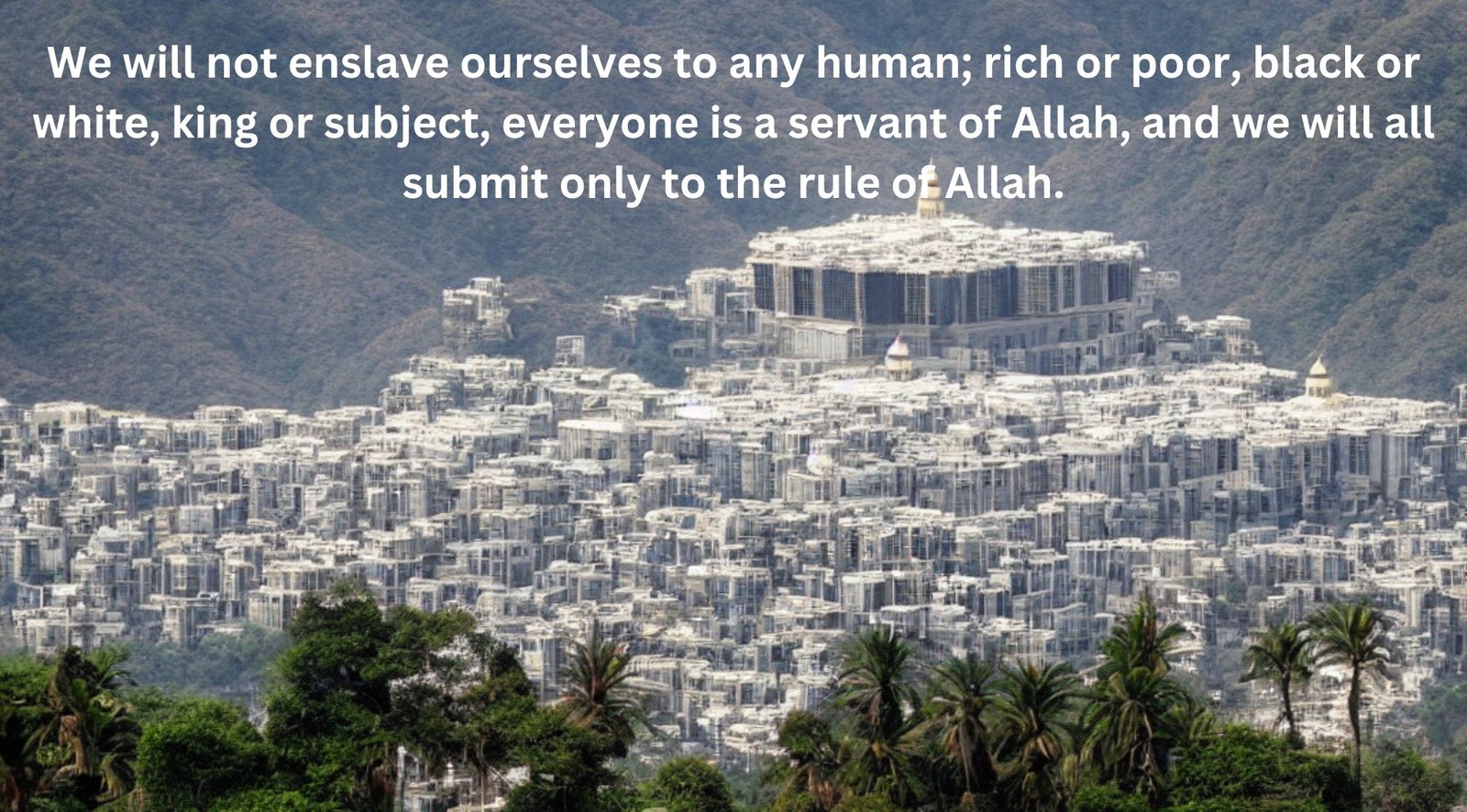 religious clergy were deeply entrenched in maintaining and benefiting from such injustices. Their self-interest dictated that they govern society through their rule, and in pursuit of that self-interest, thousands of people were oppressed, exploited, and marginalized. To uproot this tyranny of misrule, everyone in society must unite and proclaim, "We will obey only the rule of Allah." We will not care about what certain priests decree, what certain caste leaders decree, or what certain kings and rulers decree; we will only see what Allah decrees. Allah is the eternal source of justice and truth, hence only the judgment of Allah is flawless and should be followed for the welfare of all. We will not enslave ourselves to any human; rich or poor, black or white, king or subject, everyone is a servant of Allah, and we will all submit only to the rule of Allah.
religious clergy were deeply entrenched in maintaining and benefiting from such injustices. Their self-interest dictated that they govern society through their rule, and in pursuit of that self-interest, thousands of people were oppressed, exploited, and marginalized. To uproot this tyranny of misrule, everyone in society must unite and proclaim, "We will obey only the rule of Allah." We will not care about what certain priests decree, what certain caste leaders decree, or what certain kings and rulers decree; we will only see what Allah decrees. Allah is the eternal source of justice and truth, hence only the judgment of Allah is flawless and should be followed for the welfare of all. We will not enslave ourselves to any human; rich or poor, black or white, king or subject, everyone is a servant of Allah, and we will all submit only to the rule of Allah.
If the people accept this determination, then it is their liberation. In a nation where thousands of people are afflicted by diseases and on a journey towards death, this is the only medicine that can infuse new life into their bodies. Therefore, from the moment of receiving prophethood until the migration to Medina, the Messenger of Allah (PBUH) focused solely on guiding people towards Tawheed for thirteen years. There came a time when the people of Medina embraced Tawheed, and the Messenger of Allah (PBUH) formed them into a small but united nation. Whenever the personal, familial, social, national, judicial, military, and spiritual aspects of life of this united nation required guidance, the Messenger of Allah (PBUH) would convey it through the Quran. History clearly shows that the progress and advancement of a nation towards unity and prosperity based on Tawheed cannot be imagined in today's world. In the subsequent ten years, through the struggle of intellect and soul, the Messenger of Allah (PBUH) brought the remaining Arabian Peninsula to the shore of that righteousness and security. Here are a few examples of the changes that occurred in Arabia due to unity based on Tawheed.
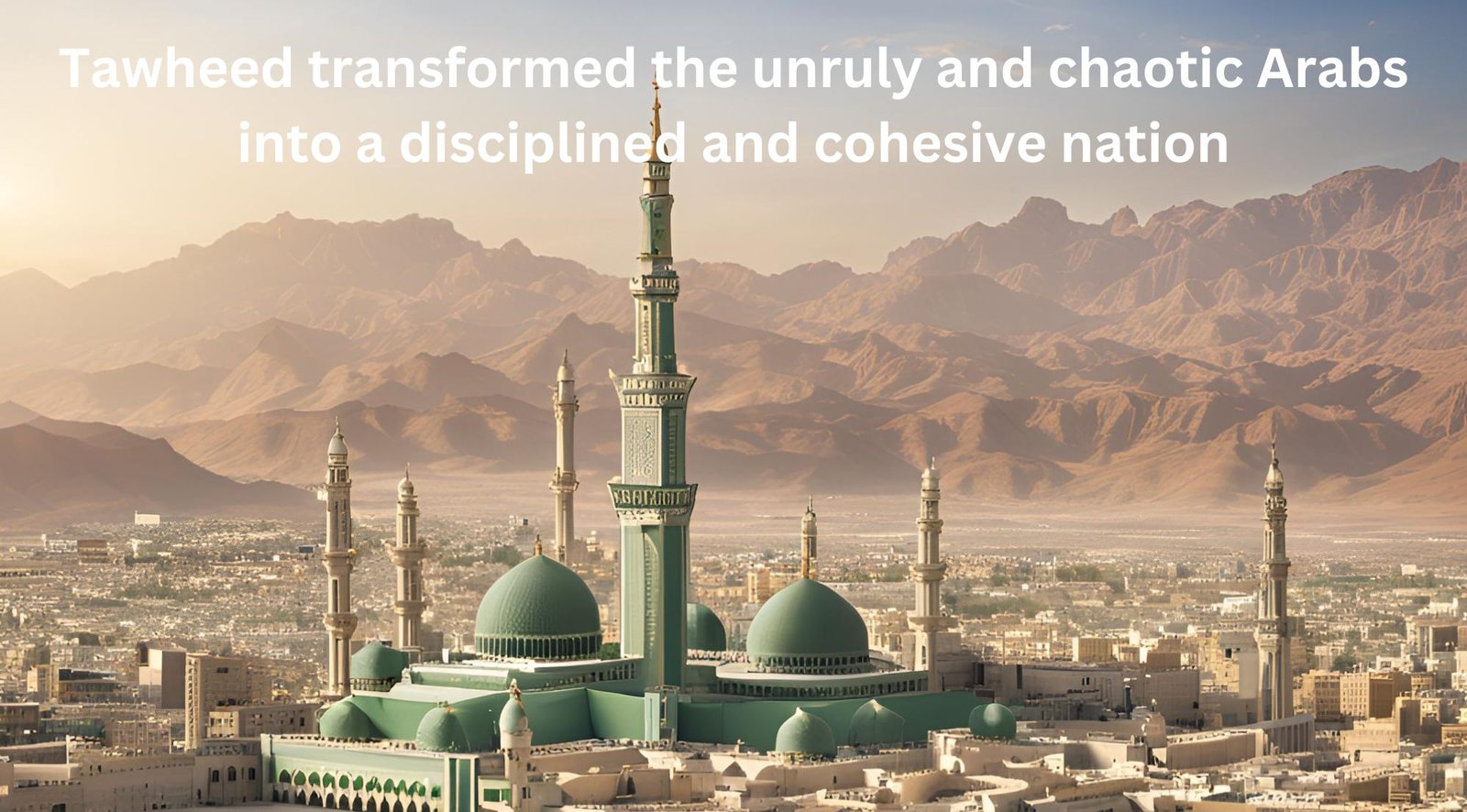 Tawheed transformed the unruly and chaotic Arabs into a disciplined and cohesive nation. It turned the warring tribes, soaked in bloodshed and vendettas, into brothers. Arab vs. non-Arab, noble vs. commoner, wealthy vs. poor, educated vs. illiterate—the arbitrary divisions in society were abolished. The only criterion for dignity was adherence to "Taqwa," meaning living a cautious life of justice and righteousness. The more someone adhered to justice, the more honourable they were considered. In a society where slaves were dehumanized, after the establishment of Tawheed, Bilal (RA), a former slave, was elevated to the status of the first Mu'adhin (caller to prayer) of Islam, symbolizing that humanity was superior to all. The Messenger of Allah (PBUH) demonstrated through the appointments of people like Zaid (RA) and his son Usama (RA) as military commanders that merit and adherence to justice were the true indicators of excellence, not lineage or nobility. The ideal of egalitarianism liberated countless people like Bilal (RA) and Zaid (RA) from the shackles of oppression, creating a storm of freedom in society. Communal and tribal divisions were among the main reasons for the backwardness of Arab society. Tawheed eradicated these divisions, uniting people of all religions, castes, and tribes into one community. Meritocracy, not aristocracy, became the norm. The marginalized and oppressed, who had no rights and were devoid of dignity under the rule of aristocrats, found their rights restored by Tawheed. Those formerly considered slaves were now equal to the nobility. The Messenger of Allah (PBUH) did not seek to establish the superiority of any lineage or tribe but emphasized the primacy of justice and righteousness. The equitable governance established by Tawheed was such that a ruler sat in the shade of a palm tree, governing the state from a mosque where not even one more than one prayer rug was laid out. Any suffering under his rule was intolerable to him, and he even slept on the ground under a tree when tired. He visited the outskirts of his governed areas to ensure no one was suffering and resolved issues on the spot.
Tawheed transformed the unruly and chaotic Arabs into a disciplined and cohesive nation. It turned the warring tribes, soaked in bloodshed and vendettas, into brothers. Arab vs. non-Arab, noble vs. commoner, wealthy vs. poor, educated vs. illiterate—the arbitrary divisions in society were abolished. The only criterion for dignity was adherence to "Taqwa," meaning living a cautious life of justice and righteousness. The more someone adhered to justice, the more honourable they were considered. In a society where slaves were dehumanized, after the establishment of Tawheed, Bilal (RA), a former slave, was elevated to the status of the first Mu'adhin (caller to prayer) of Islam, symbolizing that humanity was superior to all. The Messenger of Allah (PBUH) demonstrated through the appointments of people like Zaid (RA) and his son Usama (RA) as military commanders that merit and adherence to justice were the true indicators of excellence, not lineage or nobility. The ideal of egalitarianism liberated countless people like Bilal (RA) and Zaid (RA) from the shackles of oppression, creating a storm of freedom in society. Communal and tribal divisions were among the main reasons for the backwardness of Arab society. Tawheed eradicated these divisions, uniting people of all religions, castes, and tribes into one community. Meritocracy, not aristocracy, became the norm. The marginalized and oppressed, who had no rights and were devoid of dignity under the rule of aristocrats, found their rights restored by Tawheed. Those formerly considered slaves were now equal to the nobility. The Messenger of Allah (PBUH) did not seek to establish the superiority of any lineage or tribe but emphasized the primacy of justice and righteousness. The equitable governance established by Tawheed was such that a ruler sat in the shade of a palm tree, governing the state from a mosque where not even one more than one prayer rug was laid out. Any suffering under his rule was intolerable to him, and he even slept on the ground under a tree when tired. He visited the outskirts of his governed areas to ensure no one was suffering and resolved issues on the spot.
The main point is that Tawheed had found the solution to humanity's spiritual problems. However, unfortunately, we have deviated from that unity of Tawheed centuries ago. The 1.6 billion people known today as Muslims have strayed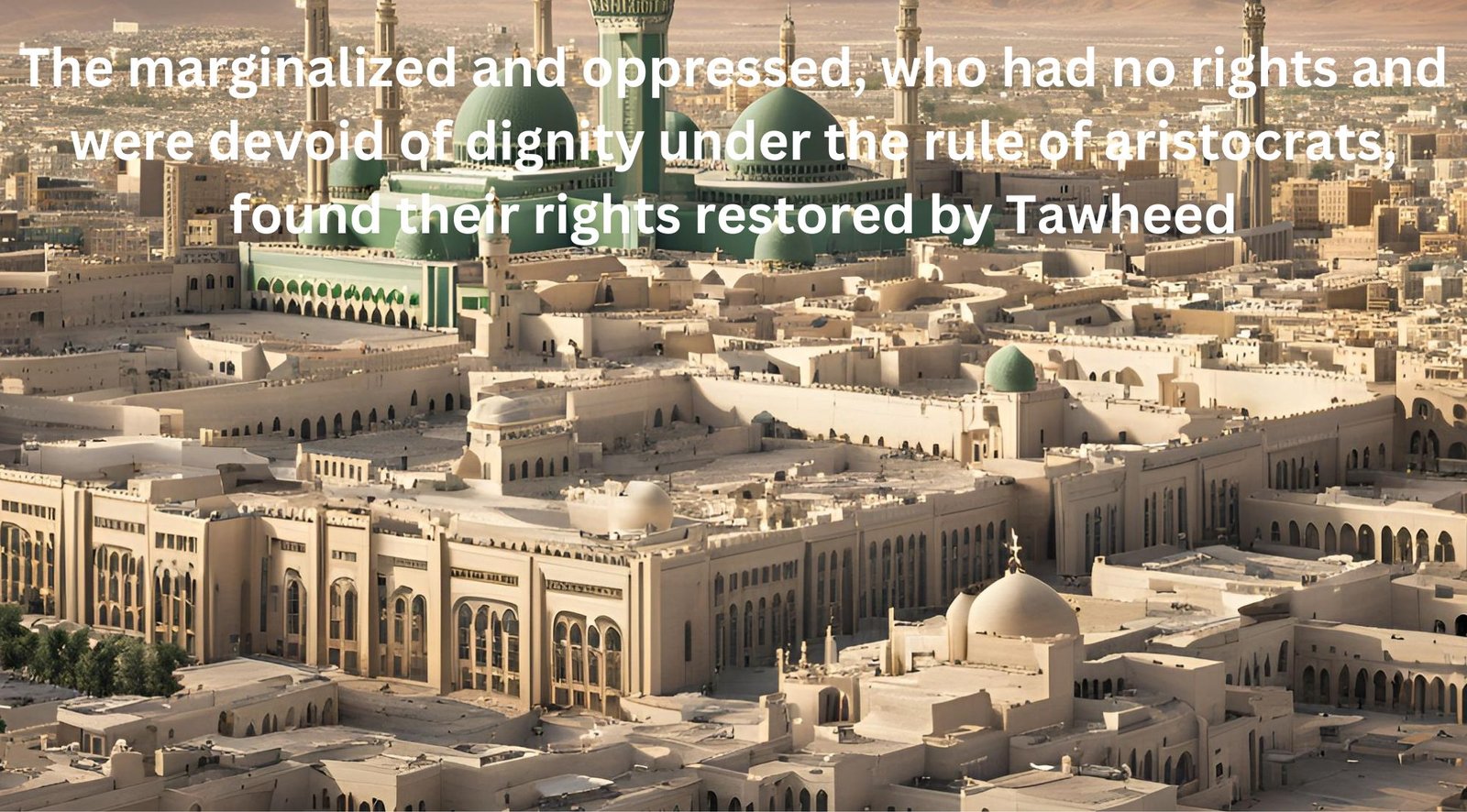 from the righteous path long before, plunging into the darkness of falsehood and confusion. Satan had long ago misled us from the straight path of Tawheed into the labyrinth of sectarianism. However, even within these divergent sects and methodologies like Mazhab, everyone in this community believes that only they are on the right path, while others are misguided. Today, converting a Jew to a Muslim or a Muslim to a Christian, converting a Sunni to a Shia or vice versa involves much difficulty. Therefore, the hope that one day all the divided factions of Islam will unite, everyone will either become Sunni or Shia, everyone will follow the Hanafi or Hanbali school of thought, everyone will become a disciple of one saint or follower of one group—such aspirations might not be realized anytime soon. What is possible, however, is to bring everyone together on a common platform based on a common statement, disregarding personal beliefs, practices, or ideologies, by considering national interests and uniting everyone under one word. And such an inclusive formula already exists, which is the fundamental principle of this religion—La ilaha illallah, meaning that we do not accept anyone's authority except Allah's. Through this principle, the Messenger of Allah (PBUH) managed to unite the people of the Jahiliyyah era during the turmoil and chaos of the Arab tribal wars, transforming them into brothers. We can also hope that in the present discord and turmoil, even the troubled souls might find their way back to the progressive declaration of Tawheed, and thereby defeat the forces of sectarianism and chaos.
from the righteous path long before, plunging into the darkness of falsehood and confusion. Satan had long ago misled us from the straight path of Tawheed into the labyrinth of sectarianism. However, even within these divergent sects and methodologies like Mazhab, everyone in this community believes that only they are on the right path, while others are misguided. Today, converting a Jew to a Muslim or a Muslim to a Christian, converting a Sunni to a Shia or vice versa involves much difficulty. Therefore, the hope that one day all the divided factions of Islam will unite, everyone will either become Sunni or Shia, everyone will follow the Hanafi or Hanbali school of thought, everyone will become a disciple of one saint or follower of one group—such aspirations might not be realized anytime soon. What is possible, however, is to bring everyone together on a common platform based on a common statement, disregarding personal beliefs, practices, or ideologies, by considering national interests and uniting everyone under one word. And such an inclusive formula already exists, which is the fundamental principle of this religion—La ilaha illallah, meaning that we do not accept anyone's authority except Allah's. Through this principle, the Messenger of Allah (PBUH) managed to unite the people of the Jahiliyyah era during the turmoil and chaos of the Arab tribal wars, transforming them into brothers. We can also hope that in the present discord and turmoil, even the troubled souls might find their way back to the progressive declaration of Tawheed, and thereby defeat the forces of sectarianism and chaos.
Images Related to this Post
Related Post







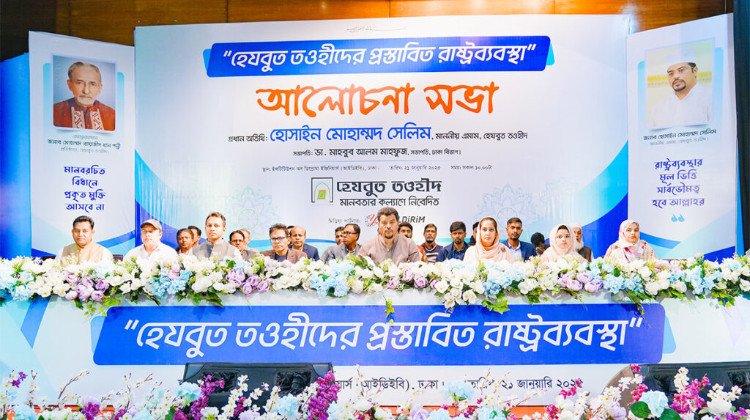

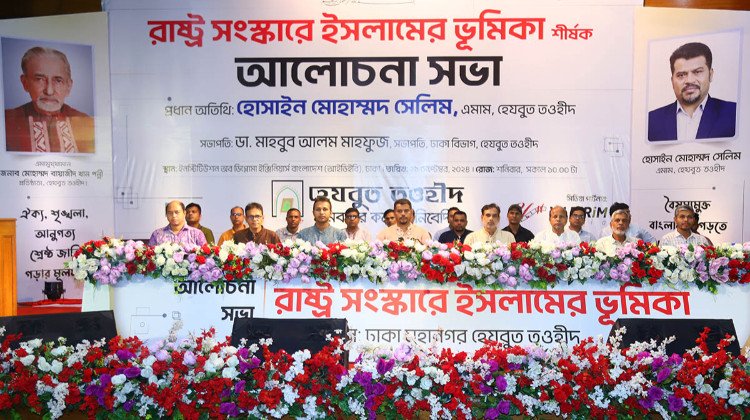

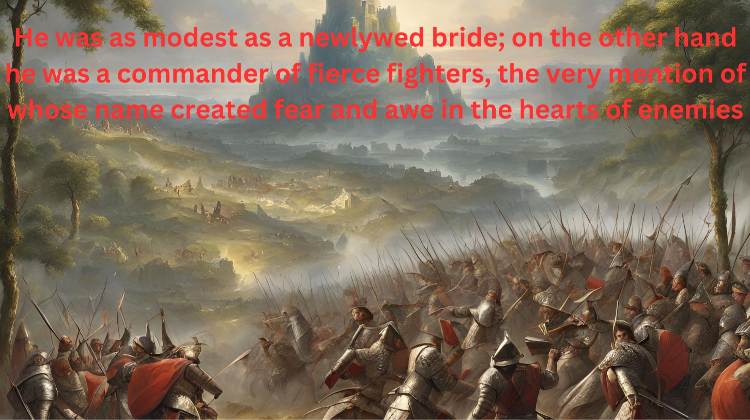



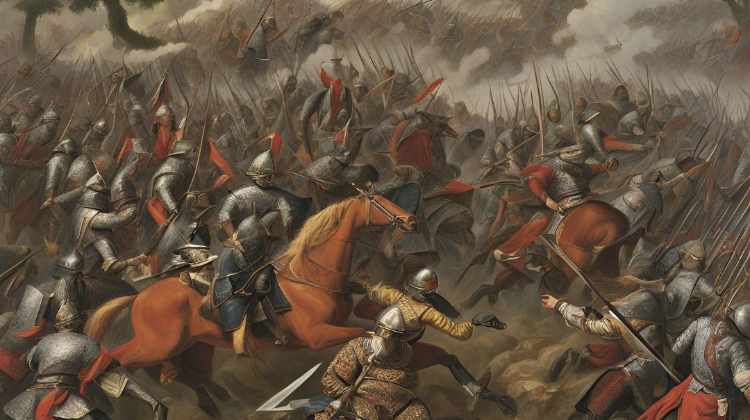
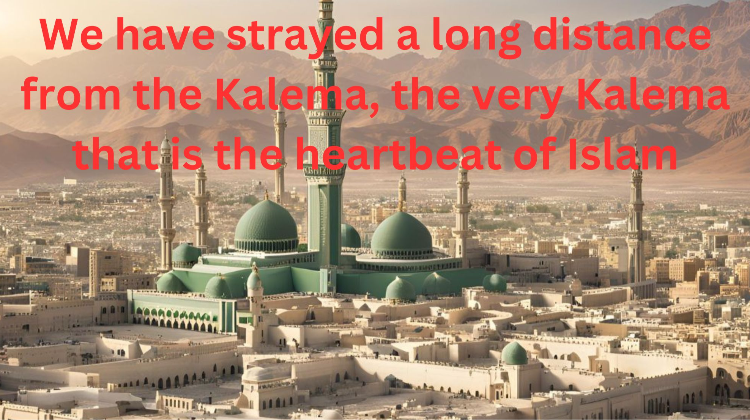
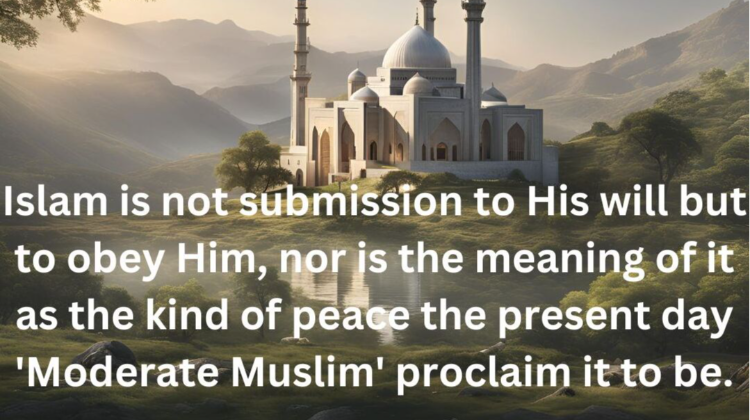
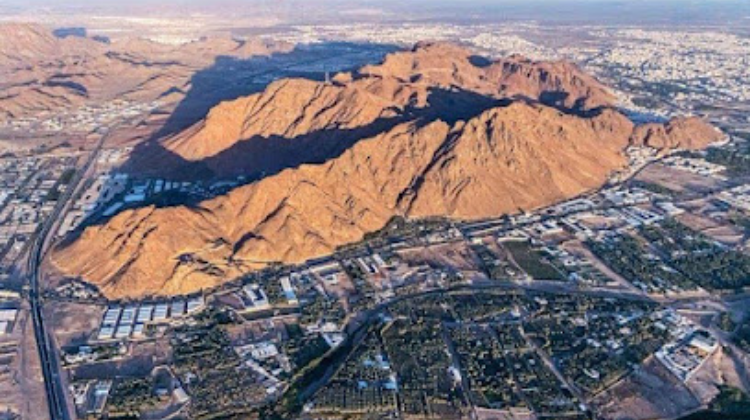
Leave a Comment